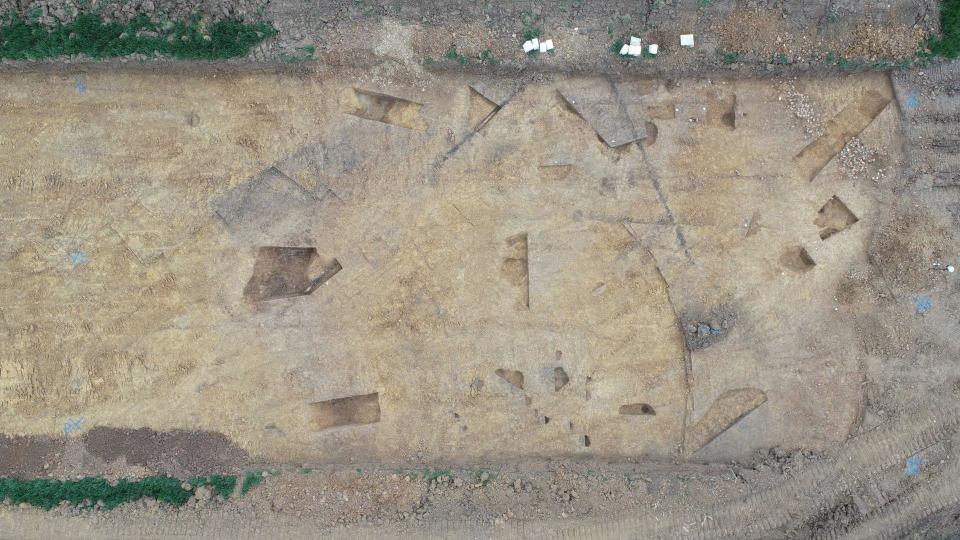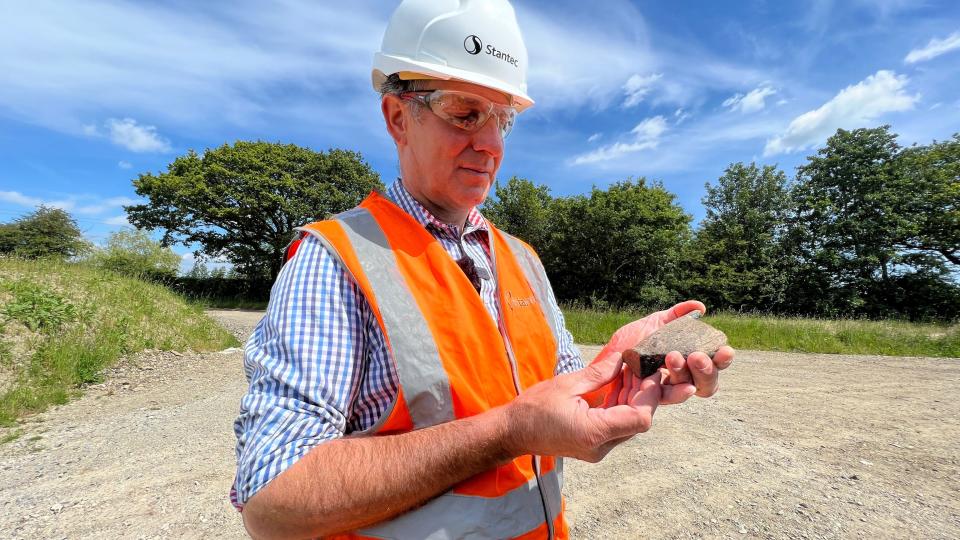Pipe dig reveals Roman and Bronze Age settlements

Evidence of settlements dating back 3,000 years have been discovered near a reservoir.
They have been unearthed by archaeologists digging ahead of the construction of a 19.5km (12-mile) water pipeline close to Abberton Reservoir, near Colchester.
Artefacts found include Roman coins and pottery from the Iron and Bronze Ages.
“It’s always fascinating to learn about the history we uncover,” said Daniel Wilson of Essex and Suffolk Water.

One of the coins discovered is believed to depict the Roman Emperor Valentinian I, who ruled from 364 to 375 AD.
The team from Oxford Archaeology have also found evidence of farmsteads and settlements, including large rectangular enclosures evidenced by clear crop marks.
The remains of several structures were unearthed, along with large deposits of oyster shell and industrial residue.
The finds are all logged, photographed and evidenced, before construction of the pipeline is allowed to continue.
'Continually changing landscape'
“Archaeology is the record of what’s happened over time,” said Tim Haines, senior archaeologist from engineering and design consultancy firm Stantec.
“The very putting of a pipeline here will become archaeology by its very nature.”
Mr Haines told the BBC the discoveries “are a lot more interesting to me than things like Stonehenge – this is how people are actually using their landscape over time”.
He said they showed Essex had “a continually changing landscape”.
The unearthed pottery, which can be linked to regions in France, meant Essex was likely to have been involved in international trade.
“We forget how much trade there was across the North Sea,” said Mr Haines.
“On the Essex coast, you’ve got all of these little estuaries so people would be trading from the continent up and down them - it’s a very dynamic, very international landscape.”

Archaeologists started researching the history of the pipeline’s route more than two years ago, but digging only started in early 2024.
The archaeological work has taken place in collaboration with Essex County Council and Colchester City Council.
Essex & Suffolk Water is building the pipeline from Layer de la Haye to Langford, near Maldon.
When complete, it will carry 20 million litres of pressurised water every day, which the water company said would improve the resilience of supply for 370,000 customers.
It is scheduled to be complete by autumn 2024.
Mr Wilson said information about the discoveries would be made publicly available.
It is hoped that some of the artefacts will eventually end up in local museums.
Follow Essex news on Facebook, Instagram and X. Got a story? Email eastofenglandnews@bbc.co.uk or WhatsApp us on 0800 169 1830


